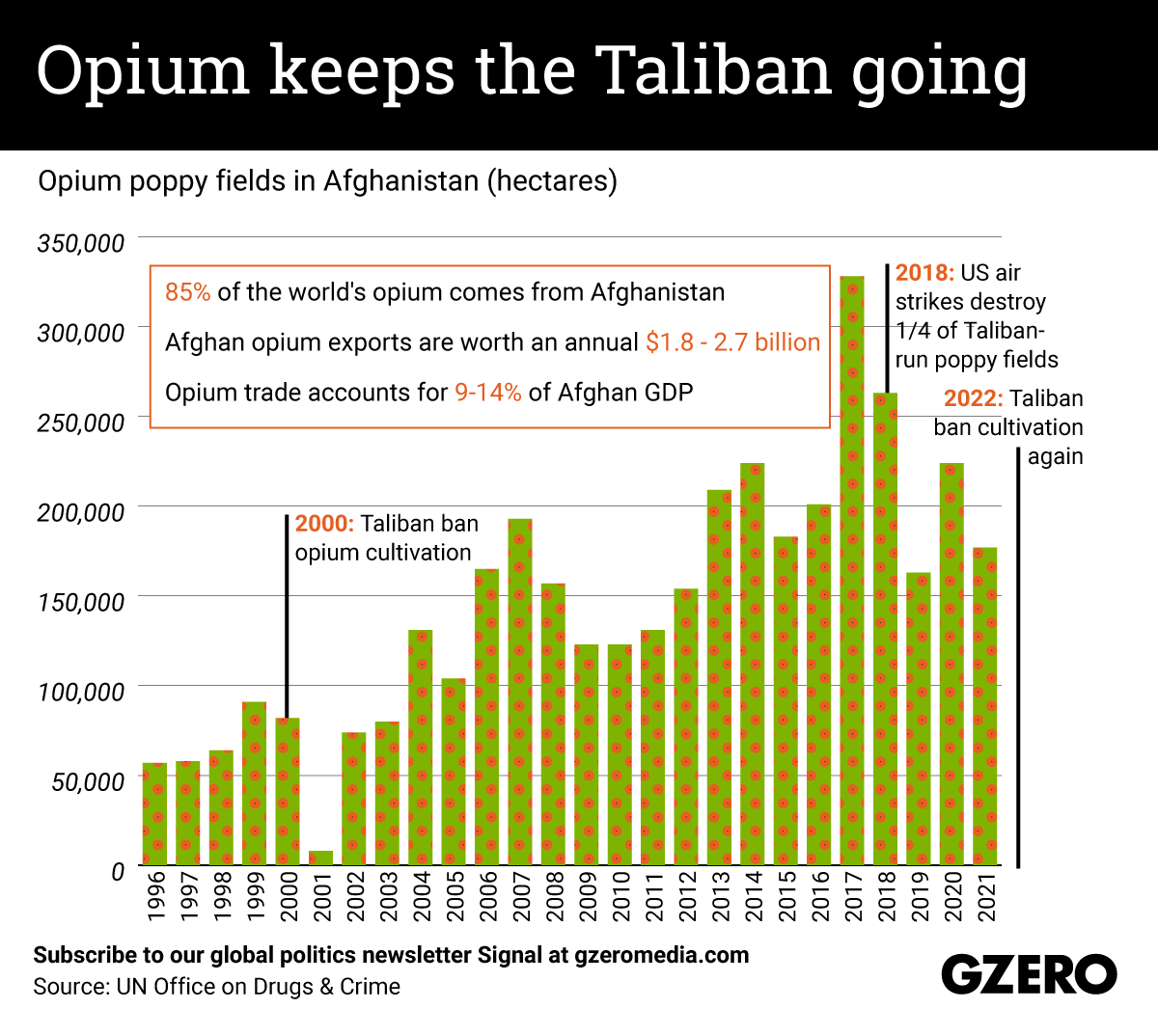Ari Winkleman
The Taliban (officially) banned opium cultivation last April, as they did before 9/11 and the subsequent US invasion that ousted them from power in Afghanistan. But in the 20 years that followed the group became the Pablo Escobars of the global poppy trade by taxing opium farmers. Now the Taliban say growing poppies is again verboten, but this year's harvest is mostly in the bag, and enforcing the ban won't be easy. We look at opium cultivation in Afghanistan since 1996, when the Taliban first ruled the country.
From Your Site Articles
- Don't blame Afghan army for Taliban takeover: Pashtana Durrani - GZERO Media ›
- Afghan activist: Taliban don’t have a plan to run Afghanistan - GZERO Media ›
- Afghan girls should stay in school despite Taliban rule, activist says - GZERO Media ›
- No exit from Afghanistan - GZERO Media ›
- No exit from Afghanistan - GZERO Media ›
- António Guterres: Let's deal with reality by engaging the Taliban - GZERO Media ›
- António Guterres: Let's deal with reality by engaging the Taliban - GZERO Media ›
- Taliban 2.0: Afghanistan on the Brink (US AWOL) - GZERO Media ›
- The Taliban has only made “cosmetic changes” since the 1990s, says author Ahmed Rashid - GZERO Media ›
- Has the Taliban changed since the 1990’s? - GZERO Media ›
